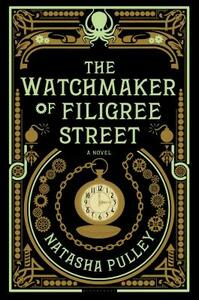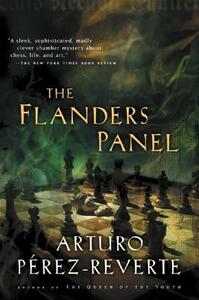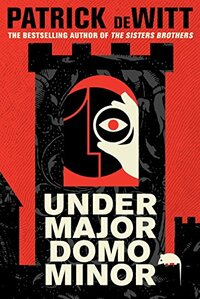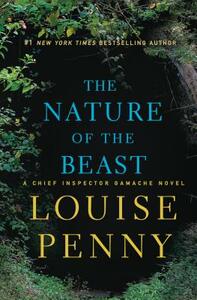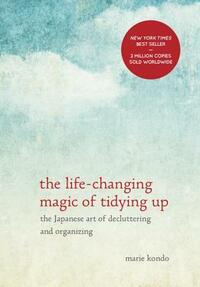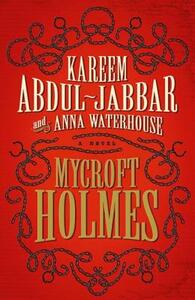Take a photo of a barcode or cover
laurieb755's Reviews (784)
Spot on. Period.
I spent parts of summers and off-season holidays on the Cape, guesting it at my in-laws for upwards (and perhaps over) 30 years. They began with a summer house and gradually expanded to accommodate my mother-in-law's mother and their own burgeoning in-law and grandchildren stock.
In the past seven years I have rented three houses on the Cape, first with my husband and some of his siblings, then just the two of us, and finally with my son and his family.
I share the above so you know that I know something about living and visiting on the Cape, and so you realize that my opening two sentences come from experience.
Marcia J. Monbleau captures the rhyme and reason and rhythm of Cape Cod (and heck, I only know a small tiny parcel of the Cape!) perfectly. Plus she understands the mixed excitement of hosting and guesting.
For such a short book read on this lazy Sunday afternoon, I sure had a relatively large amount of words to offer. ;-) And one week ago we returned from the perfect two weeks on Cape Cod. What else can I say?
Oh yes. That we are thinking of becoming non-guests and segueing to residents. Sometime in the next few years. At which time, all our friends will be invited to come stay with us as guests. We'll send them directions and a copy of this book.
I spent parts of summers and off-season holidays on the Cape, guesting it at my in-laws for upwards (and perhaps over) 30 years. They began with a summer house and gradually expanded to accommodate my mother-in-law's mother and their own burgeoning in-law and grandchildren stock.
In the past seven years I have rented three houses on the Cape, first with my husband and some of his siblings, then just the two of us, and finally with my son and his family.
I share the above so you know that I know something about living and visiting on the Cape, and so you realize that my opening two sentences come from experience.
Marcia J. Monbleau captures the rhyme and reason and rhythm of Cape Cod (and heck, I only know a small tiny parcel of the Cape!) perfectly. Plus she understands the mixed excitement of hosting and guesting.
For such a short book read on this lazy Sunday afternoon, I sure had a relatively large amount of words to offer. ;-) And one week ago we returned from the perfect two weeks on Cape Cod. What else can I say?
Oh yes. That we are thinking of becoming non-guests and segueing to residents. Sometime in the next few years. At which time, all our friends will be invited to come stay with us as guests. We'll send them directions and a copy of this book.
This was a wonderfully imagined story. I didn't know what would happen next. I thought I might know what would happen, but I was wrong. And I was surprised. And I was curious. And interested. And delighted.
It took me a few pages to become accustomed to Natasha Pulley's style. At first I thought it was slightly clunky - a new writer not sure of her footing. But then I realized she knew exactly what she was doing and what her characters were doing and saying; she was writing in the style of her story.
And I smiled in delight with the end of the story.
Thank you. I was lost in a good book.
It took me a few pages to become accustomed to Natasha Pulley's style. At first I thought it was slightly clunky - a new writer not sure of her footing. But then I realized she knew exactly what she was doing and what her characters were doing and saying; she was writing in the style of her story.
And I smiled in delight with the end of the story.
Thank you. I was lost in a good book.
My second Pérez-Reverte novel (see previous review for my first). I wasn't keen on the beginning of this book, thinking the writing was a bit lame and overdone, but I kept with it because the mystery beckoned. First it was the mystery of the painting, then it was the mystery of the modern, and then it was simply a good yarn.
I devoured this book in three days. Of course, it helped that two of them were not work days, having had Wednesday off for the holiday and today being my regular day off.
As for art mysteries, my favorites are still the Iain Pears Art History Mysteries. And as a book aside, turns out - looking over the list of books by Pears - I've read them all save for the one published this year, and that one I am simply waiting for my local library to acquire.
I devoured this book in three days. Of course, it helped that two of them were not work days, having had Wednesday off for the holiday and today being my regular day off.
As for art mysteries, my favorites are still the Iain Pears Art History Mysteries. And as a book aside, turns out - looking over the list of books by Pears - I've read them all save for the one published this year, and that one I am simply waiting for my local library to acquire.
I am still pondering this mystery of books, authors, and characters that came highly recommended by my daughter-in-law (who read this book in its original Spanish.) Much like Corso himself, who was trying to figure out what role he was playing in this book about books - this story about stories, I am still wondering which events were "real" and which were "fiction" within the fictionalized world crafted by Arturo Pérez-Reverte.
You do not have to be a fan of Alexander Dumas or his Three Musketeers to appreciate this story. You simply have to like a good mystery that makes you think, a book that causes you to question what is going on or to accept it and then - as with Corso himself - discover where you went wrong in your acceptances and assumptions.
The story begins in fairly modern times, as compared to the books and stories referenced within, yet I kept thinking I was reading a tale from long ago. This evening I will reread the final chapter, because it is still fogging around in my imagination!
And for those who like to delve deep into a novel, this Wikipedia entry lists all the texts, both real and otherwise, referenced in The Club Dumas.
PS I did not wind up rereading the final chapter. Instead, even better, I had a conversation or two with my daughter-in-law, and that helped to clear the fog. Two mysteries, two endings, both now clear to me.
You do not have to be a fan of Alexander Dumas or his Three Musketeers to appreciate this story. You simply have to like a good mystery that makes you think, a book that causes you to question what is going on or to accept it and then - as with Corso himself - discover where you went wrong in your acceptances and assumptions.
The story begins in fairly modern times, as compared to the books and stories referenced within, yet I kept thinking I was reading a tale from long ago. This evening I will reread the final chapter, because it is still fogging around in my imagination!
And for those who like to delve deep into a novel, this Wikipedia entry lists all the texts, both real and otherwise, referenced in The Club Dumas.
PS I did not wind up rereading the final chapter. Instead, even better, I had a conversation or two with my daughter-in-law, and that helped to clear the fog. Two mysteries, two endings, both now clear to me.
This was an odd book and I do not quite know what to make of it. I had a difficult time entering Patrick deWitt's conjured world, often feeling like an outsider observing bizarre behaviours. Yes, I read it to the end because of curiosity and wanting to know how Lucy's life finally resolves itself.
However, about three quarters of the way through I found myself not wanting to read every word, and eventually I gave in and took to skimming.
Often in reading what I consider "good" fiction, I tend accept the author's premises about the world and characters they have created. This makes it possible for me to believe what is taking place, whether or not it is plausible.
With this book I never was able to figure out what the author's world rules were, and thus was never able to feel a participant or even a voyeur. Further, whatever I could deduce about this world was unpleasant. The only positive is that by the very very end it was possible to say Hurrah for Lucy.
However, about three quarters of the way through I found myself not wanting to read every word, and eventually I gave in and took to skimming.
Often in reading what I consider "good" fiction, I tend accept the author's premises about the world and characters they have created. This makes it possible for me to believe what is taking place, whether or not it is plausible.
With this book I never was able to figure out what the author's world rules were, and thus was never able to feel a participant or even a voyeur. Further, whatever I could deduce about this world was unpleasant. The only positive is that by the very very end it was possible to say Hurrah for Lucy.
Gamache + Laurent + murder = philosophic contemplation of weapons, the people who make-sell-buy them, and trying to understand the question and responses to how far would you go to protect a greater number of people at the expense of a smaller number of people. Once again Louise Penny opens up her tale by drawing me in to Gamache and the people who inhabit his world, while considering greater philosophic questions.
If you like Gamache, you will likely enjoy this book as much as - or more than - the previous one(s). And if you have not yet met Gamache and his friends, I encourage you to join them in food for thought!
If you like Gamache, you will likely enjoy this book as much as - or more than - the previous one(s). And if you have not yet met Gamache and his friends, I encourage you to join them in food for thought!
This was a difficult book for me to read verbatim.
Marie Kondo does provide useful, practical advice about how to tidy one's home. Her philosophic approach as to why this is beneficial: a tidy home, filled with objects that evoke love and delight in the heart, will lead to a life that is equally satisfying and filled with love and delight.
Reading a few pages of this was mildly interesting. Reading 200 pages was like being super-saturated with sappiness. Hence, my eventual page scanning. Kondo made this fairly easy to do as periodically there were bold faced sentences that highlighted her points; the remainder was non-essential.
IF you are looking to reorganize your life, perhaps this is a useful starting point for one approach to finding calm. I was under the impression Marie Kondo's text would discuss feng shui, which was the initial appeal of borrowing the book from my local library, as I am curious to understand more about feng shui - its esthetics and philosophic underpinings. Indeed, if anyone has any book suggestions related to feng shui perhaps you will be able to note that in a comment. Thanks, if you do!
Marie Kondo does provide useful, practical advice about how to tidy one's home. Her philosophic approach as to why this is beneficial: a tidy home, filled with objects that evoke love and delight in the heart, will lead to a life that is equally satisfying and filled with love and delight.
Reading a few pages of this was mildly interesting. Reading 200 pages was like being super-saturated with sappiness. Hence, my eventual page scanning. Kondo made this fairly easy to do as periodically there were bold faced sentences that highlighted her points; the remainder was non-essential.
IF you are looking to reorganize your life, perhaps this is a useful starting point for one approach to finding calm. I was under the impression Marie Kondo's text would discuss feng shui, which was the initial appeal of borrowing the book from my local library, as I am curious to understand more about feng shui - its esthetics and philosophic underpinings. Indeed, if anyone has any book suggestions related to feng shui perhaps you will be able to note that in a comment. Thanks, if you do!
Her picture reminds me of Willie Kerkovan, a friend of my in-laws who lived in Brewster, MA. Her writing reminds me of Jane Bartels, my mother-in-law, who lived in Orleans, MA, same place as Erma J Fisk. I spent 30 plus summers and occasional fall and winter holidays on the Cape in Orleans. And Fred and I want to move there in the next few years, our next stop along the line, a line that we draw as it happens.
It should therefore not be a surprise that Erma J Fisk's A Cape Cod Journal touched me to the quick. She died 25 years ago yet I felt she was as alive as ever while reading her Journal. She opens her heart to share the highs and the lows, and does not mince her words.
And how did A Cape Cod Journal come to be in my book pile? First, Jane and Bob moved from their sprawling home in Orleans to an independent living community in Boston. This summer, years after Jane died, Bob moved from the independent side of his building to the assisted living side, which meant paring down belongings yet once again. When it was Fred's stint to work on packing up he found this book, inscribed to Jane & Bob back in August, 2002, thanking my in-laws for their "warm welcome and your helping hands & hearts." That would have been so typical of my mother-in-law, and likewise of Erma J Fisk.
It should therefore not be a surprise that Erma J Fisk's A Cape Cod Journal touched me to the quick. She died 25 years ago yet I felt she was as alive as ever while reading her Journal. She opens her heart to share the highs and the lows, and does not mince her words.
And how did A Cape Cod Journal come to be in my book pile? First, Jane and Bob moved from their sprawling home in Orleans to an independent living community in Boston. This summer, years after Jane died, Bob moved from the independent side of his building to the assisted living side, which meant paring down belongings yet once again. When it was Fred's stint to work on packing up he found this book, inscribed to Jane & Bob back in August, 2002, thanking my in-laws for their "warm welcome and your helping hands & hearts." That would have been so typical of my mother-in-law, and likewise of Erma J Fisk.
Part of me wants to say "short and sweet", though at 300+ pages it really isn't all that short. However, I read it fairly quickly so it seemed short. In any case, this was an enjoyable romp and an interesting imagining of how Mycroft Holmes got his start - what formed his impressions and philosophy.
The NY Times Sunday Book Review's article got me interested and the team of Kareem Abdul-Jabbar and Anna Waterhouse did not disappoint. I confess that part of my interest stemmed in wanting to see what type of writer and story teller Abdul-Jabbar was. Having read the book's author bio for him I now want to read some of his other stories, including those for children.
If you are a Sherlock Holmes fan then this book will not disappoint, and Mycroft would be pleased to know that his early efforts have not been forgotten!
The NY Times Sunday Book Review's article got me interested and the team of Kareem Abdul-Jabbar and Anna Waterhouse did not disappoint. I confess that part of my interest stemmed in wanting to see what type of writer and story teller Abdul-Jabbar was. Having read the book's author bio for him I now want to read some of his other stories, including those for children.
If you are a Sherlock Holmes fan then this book will not disappoint, and Mycroft would be pleased to know that his early efforts have not been forgotten!
I looked forward to reading this book after first reading The NY Times ArtsBeat advance notice of it. It took awhile for my local library to get the English version. (First time I took home the reserved book it was in Italian and I hadn't checked beyond the cover till sitting down to read it.)
This is not a long book and it might have taken me a shorter time stretch to read it, but I just couldn't read it. I started with high hopes, being familiar with Umberto Eco's previous works. However, what some may find as interesting stories were just blabbering and run on thoughts and sentences to me.
Yes, I was a little curious to see how the romance played out and what the "big" event would be that caused the events of the opening chapter. But beyond that, somewhere around page 141, I stopped reading verbatim and turned to fast skimming. The skimming sufficed.
With that said, I ultimately realized that Eco wanted to tell a truth about Italy and perhaps about governments, in general. Satire. I got it, but in his telling it didn't grab me. But it did grab Tom Rachman, as you can see in his NY Times Sunday Book Review (published online yesterday and in print tomorrow.)
This is not a long book and it might have taken me a shorter time stretch to read it, but I just couldn't read it. I started with high hopes, being familiar with Umberto Eco's previous works. However, what some may find as interesting stories were just blabbering and run on thoughts and sentences to me.
Yes, I was a little curious to see how the romance played out and what the "big" event would be that caused the events of the opening chapter. But beyond that, somewhere around page 141, I stopped reading verbatim and turned to fast skimming. The skimming sufficed.
With that said, I ultimately realized that Eco wanted to tell a truth about Italy and perhaps about governments, in general. Satire. I got it, but in his telling it didn't grab me. But it did grab Tom Rachman, as you can see in his NY Times Sunday Book Review (published online yesterday and in print tomorrow.)

